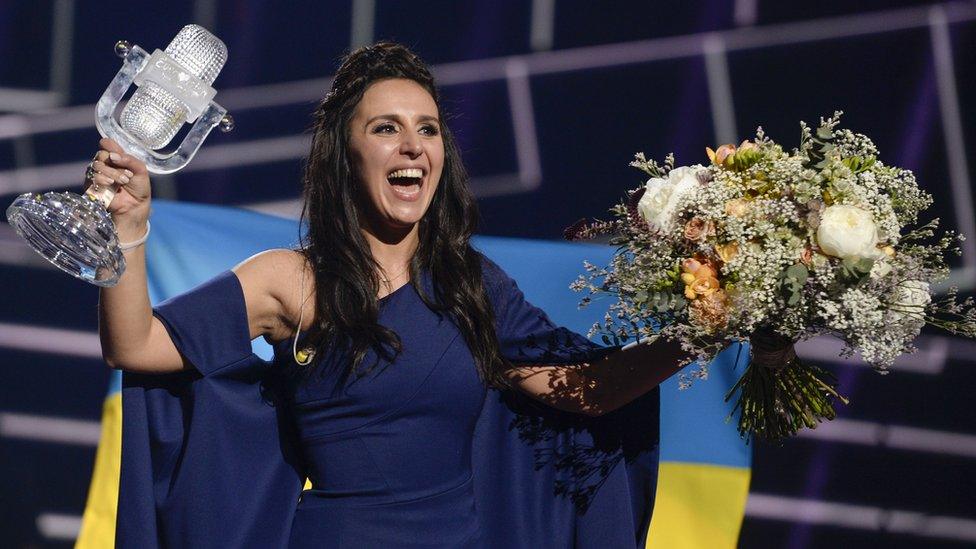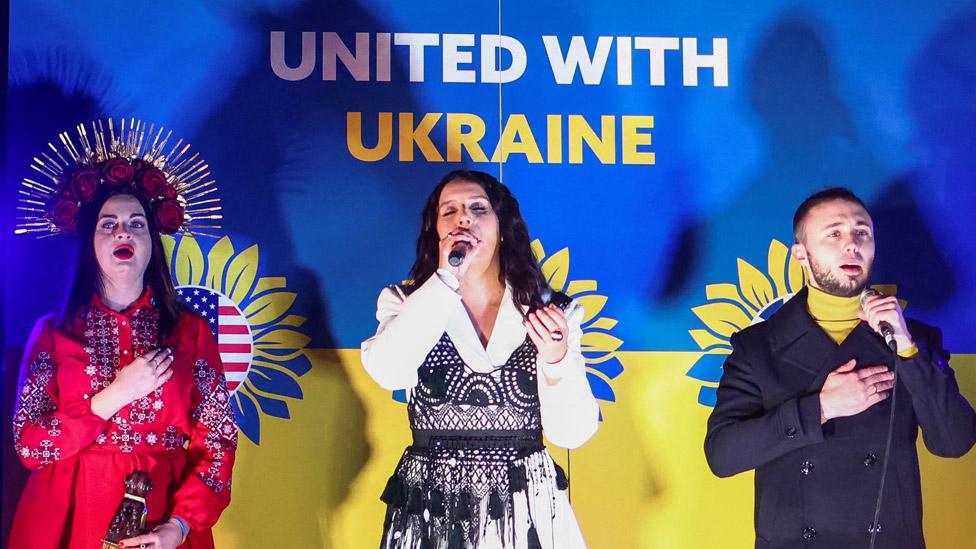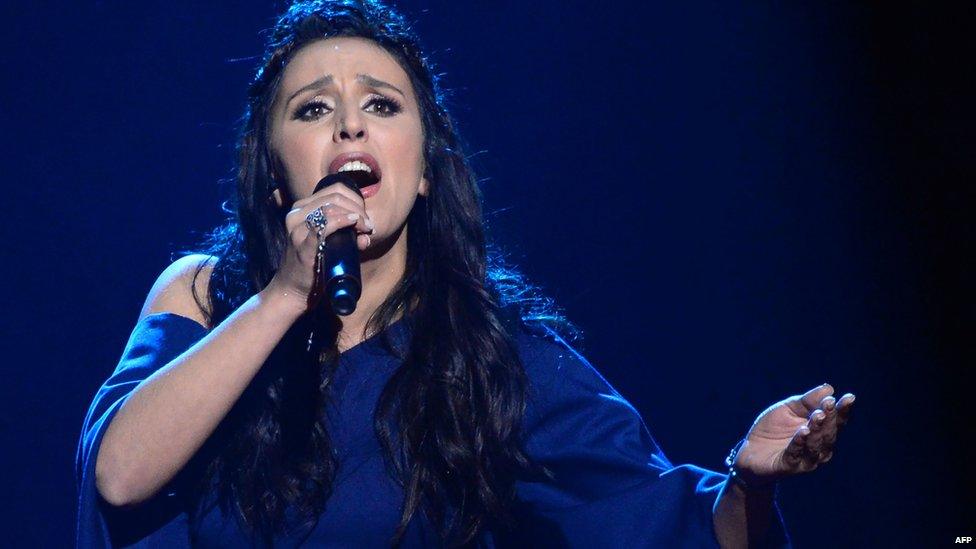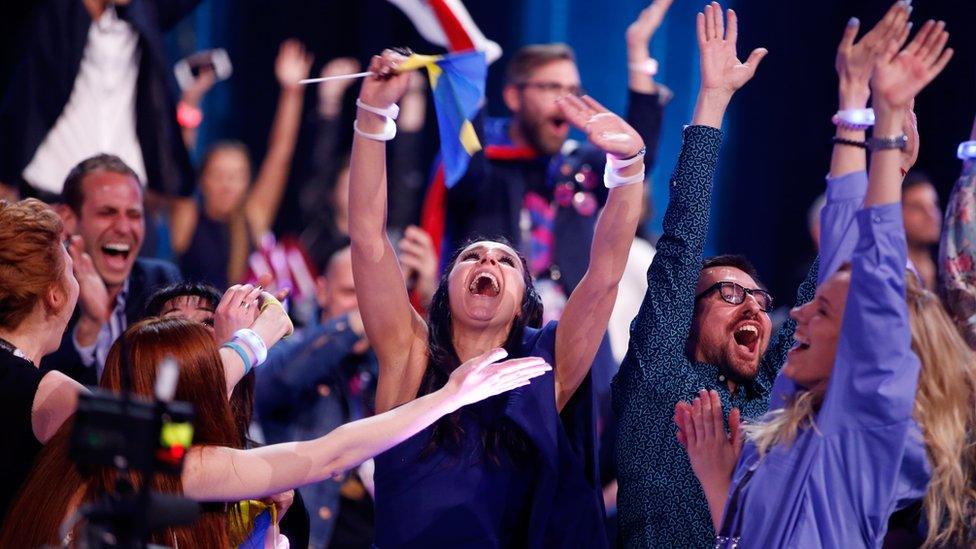Jamala: Ukrainian Eurovision winner added to Russia's wanted list
- Published

Russia complained that Jamala's Eurovision-winning song should have been ruled out for being too political
Russia has added Ukrainian Eurovision song contest winner Jamala to its wanted list, according to state media.
The singer, whose real name is Susana Jamaladinova, has reportedly been accused of spreading fake information about the Russian armed forces.
The Kremlin often levels such charges against those who share details of Russia's invasion of Ukraine that conflicts with its official line.
Jamala has been openly critical of Russia's invasion of Ukraine.
She was placed on the wanted list last month, according to the independent Russian human rights website Mediazona. Details of the listing were only picked up on Monday.
Russian breaking news Telegram channel Shot claimed Jamala was on the list for posting "fakes" about atrocities in the Ukrainian town of Bucha in 2022.
The Kremlin has denied responsibility for the massacre that occurred there while Russian troops occupied the Kyiv suburb, despite there being evidence that it was Russian forces' doing.
Jamala, who is currently in Australia, responded to the news of her being placed on the list by posting a photo of herself in front of the Sydney Opera House with a link to an article about it and a facepalm emoji.
The 40-year-old fled Ukraine with her family after Russia's invasion in February last year.
Jamala won Eurovision in 2016 with the song entitled 1944, which was inspired by the forced deportation of her people - the Crimean Tatars - by Russia during that year.
It caused controversy, with allegations the lyrics broke the competition's rule against overtly political songs. However, the organisers allowed it and it eventually upset the odds by pipping Russia to the title.
Many saw a clear message in the song about Russia's illegal annexation of the Crimean Peninsula from Ukraine in 2014.
Speaking to the BBC earlier this year about the release of her new folk album, Qirim, Jamala said it was her attempt "to give strong voice to my homeland, to Crimea".
"The centuries of the Russian Empire, then Soviet Union, now Russia - they did a lot of propaganda to shut us up. Then they told the whole world we did not exist.
"But we know the truth. I know the truth. And so that's why for me, it's really important to show this truth through the stories behind each of the songs in this album."
Related topics
- Published28 March 2023

- Published15 May 2016

- Published15 May 2016
